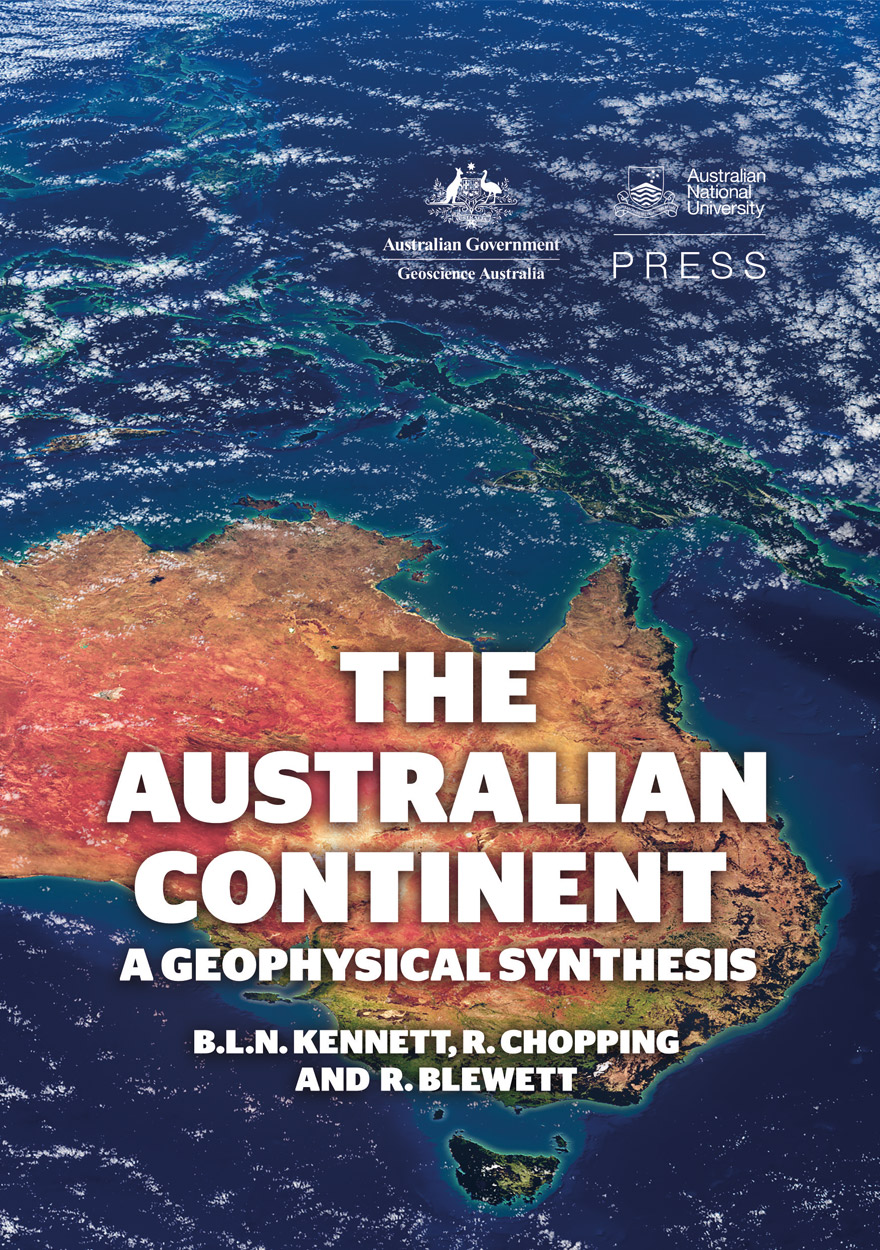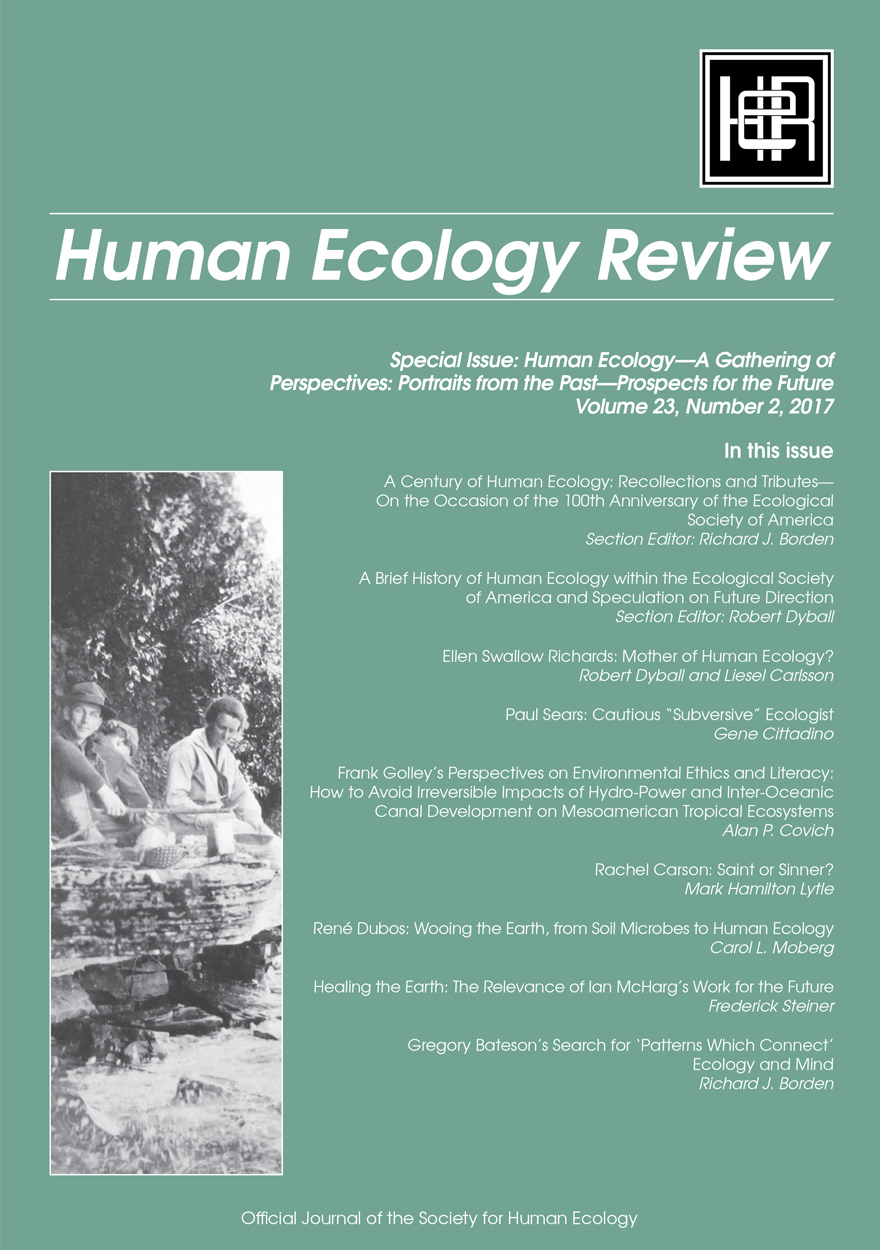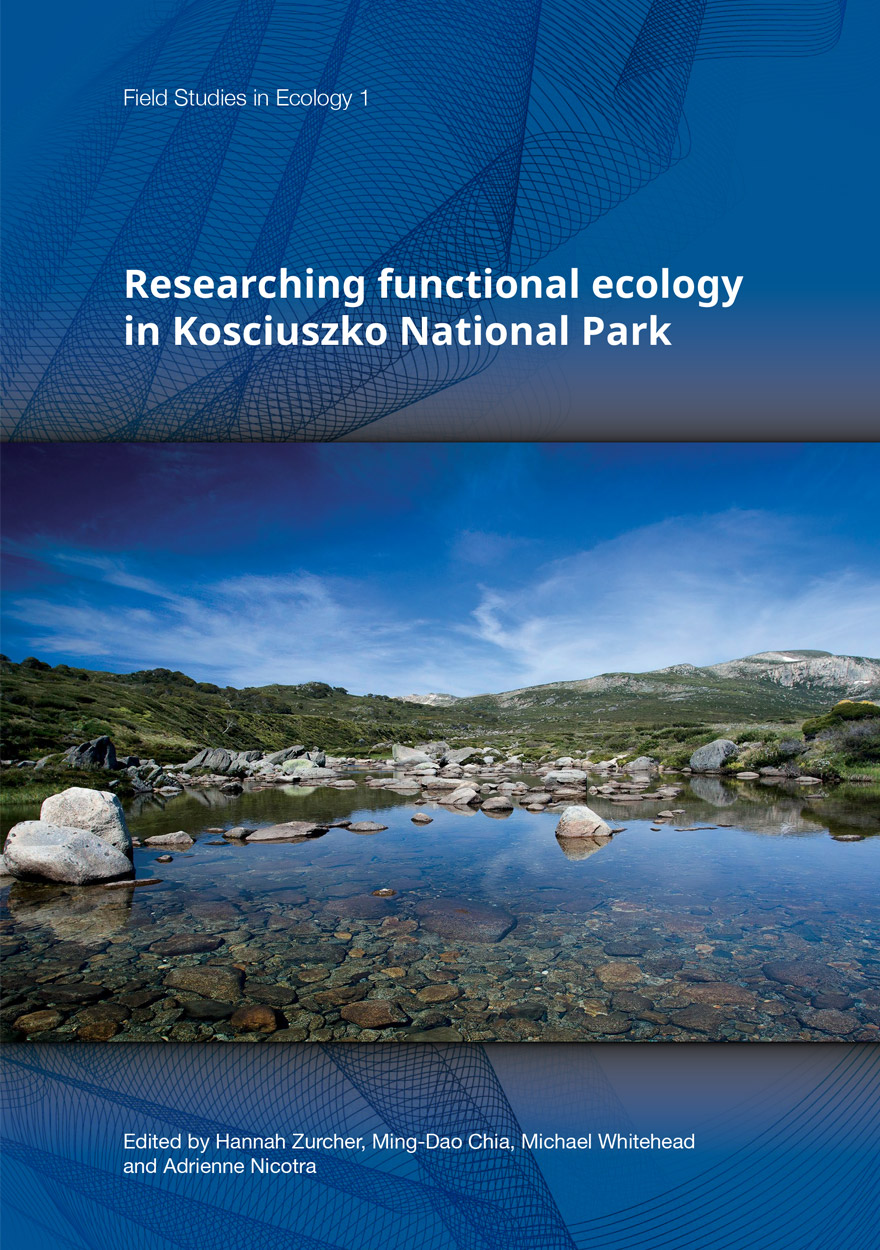Search titles
Displaying results 41 to 50 of 152.

The Australian Continent »
A Geophysical Synthesis
Publication date: August 2018
The Australian Continent: A Geophysical Synthesis is designed to provide a summary of the character of the Australian continent through the extensive information available at the continental scale, as a contribution to the understanding of Australia's lithospheric architecture and its evolution.
The results build on the extensive databases assembled at Geoscience Australia, particularly for potential fields, supplemented by the full range of seismological information, mostly from The Australian National University. To aid in cross comparison of results from different disciplines, information is presented with a common projection and scales.

Island Rivers »
Fresh Water and Place in Oceania
Edited by: John R. Wagner, Jerry K. Jacka
Publication date: June 2018
Anthropologists have written a great deal about the coastal adaptations and seafaring traditions of Pacific Islanders, but have had much less to say about the significance of rivers for Pacific island culture, livelihood and identity. The authors of this collection seek to fill that gap in the ethnographic record by drawing attention to the deep historical attachments of island communities to rivers, and the ways in which those attachments are changing in response to various forms of economic development and social change. In addition to making a unique contribution to Pacific island ethnography, the authors of this volume speak to a global set of issues of immense importance to a world in which water scarcity, conflict, pollution and the degradation of riparian environments afflict growing numbers of people. Several authors take a political ecology approach to their topic, but the emphasis here is less on hydro-politics than on the cultural meaning of rivers to the communities we describe. How has the cultural significance of rivers shifted as a result of colonisation, development and nation-building? How do people whose identities are fundamentally rooted in their relationship to a particular river renegotiate that relationship when the river is dammed to generate hydro-power or polluted by mining activities? How do blockages in the flow of rivers and underground springs interrupt the intergenerational transmission of local ecological knowledge and hence the ability of local communities to construct collective identities rooted in a sense of place?

International Review of Environmental History: Volume 4, Issue 1, 2018 »
Edited by: James Beattie
Publication date: May 2018
International Review of Environmental History takes an interdisciplinary and global approach to environmental history. It encourages scholars to think big and to tackle the challenges of writing environmental histories across different methodologies, nations, and time-scales. The journal embraces interdisciplinary, comparative and transnational methods, while still recognising the importance of locality in understanding these global processes.
The journal’s goal is to be read across disciplines, not just within history. It publishes on all thematic and geographic topics of environmental history, but especially encourage articles with perspectives focused on or developed from the southern hemisphere and the ‘global south’.
Download for free
Not available for purchase

The Quest for the Good Life in Precarious Times »
Ethnographic Perspectives on the Domestic Moral Economy
Edited by: Chris Gregory, Jon Altman
Publication date: April 2018
The study of the quest for the good life and the morality and value it presupposes is not new. To the contrary, this is an ancient issue; its intellectual history can be traced back to Aristotle. In anthropology, the study of morality and value has always been a central concern, despite the claim of some scholars that the recent upsurge of interest in these issues is new. What is novel is how scholars in many disciplines are posing the value question in new ways. The global economic alignments of the present pose many political, moral and theoretical questions, but the central issue the essays in this collection address is: how do relatively poor people of the Australia–Pacific region survive in current precarious times? In looking to answer this question, contributors directly engage the values and concepts of their interlocutors. At a time when understanding local implications of global processes is taking on new urgency, these essays bring finely honed anthropological perspectives to matters of universal human concern—they offer radical empirical critique based on intensive fieldwork that will be of great interest to those seeking to comprehend the bigger picture.

Vietnam’s Post-1975 Agrarian Reforms »
How local politics derailed socialist agriculture in southern Vietnam
Authored by: Trung Dang
Publication date: April 2018
This book investigates why collectivised farming failed in south Vietnam after 1975. Despite the strong will of the new regime to implement collectivisation, the effort was uneven, misapplied and subverted. After only 10 years of trying, the regime annulled the policy. Focusing on two case studies—Quảng Nam province in the Central Coast region and An Giang province in the Mekong Delta—and based on extensive evidence, this study argues that the reasons for variations in implementation and the failure and reversal of the policy were twofold: regional differences and local politics.

Made in China Journal: Volume 3, Issue 1, 2018 »
Publication date: March 2018
On 12 May 2008, a 7.9 magnitude earthquake hit Wenchuan county, Sichuan province. Felt as far as Beijing, the tremors caused horrific damage: 69,229 people died and 17,923 went missing. Yet, the aftermath of the seism was also a time of hope—with Chinese citizens from all over the country outdoing each other to show solidarity with the victims. As local governments began to recognise the importance of NGOs in providing disaster relief and social services, 2008 was widely seen as a ‘Year Zero’ for Chinese civil society. At that time, hardly anybody could have foreseen the wave of repression against civil society that was to come and that is today the norm. This issue looks back at the legacy of this disaster, and the ways in which state and civil society actors renegotiate their positions during ‘states of emergency’.
Download for free
Not available for purchase

Between the Plough and the Pick »
Informal, artisanal and small-scale mining in the contemporary world
Edited by: Kuntala Lahiri-Dutt
Publication date: March 2018
Between the Plough and the Pick deepens our understanding of informal, artisanal and small-scale mining, popularly known as ASM. The book engages with wider scholarly conceptualisations of contemporary global social, agrarian and political changes, whilst underlining the roles that local social‑political-historical contexts play in shaping mineral extractive processes and practices. It shows that the people who are engaged in these mining practices are often the poorest and most exploited labourers—erstwhile peasants caught in the vortex of global change, who perform the most insecure and dangerous tasks. Although these people are located at the margins of mainstream economic life, they collectively produce enormous amounts of diverse material commodities and find a livelihood (and often a pathway out of oppressive poverty).
The contributions to this book bring these people to the forefront of debates on resource politics. The contributors are international scholars and practitioners who explore the complexities in the histories, in labour and production practices, the forces driving such mining, the creative agency and capacities of these miners, as well as the human and environmental costs of ASM. They show how these informal, artisanal and small‑scale miners are inextricably engaged with, or bound to, global commodity values, are intimately involved in the production of new extractive territories and rural economies, and how their labour reshapes agrarian communities and landscapes of resource access and control.
This book drives home the understanding that, collectively, this social and economic milieu redefines our conceptualisation of resource politics, mineral‑dependent livelihoods, extractive geographies of resources and commodities, and their multiple meanings.

Human Ecology Review: Volume 23, Number 2 »
Special Issue: Human Ecology—A Gathering of Perspectives: Portraits from the Past—Prospects for the Future
Publication date: December 2017
Human Ecology Review is a semi-annual journal that publishes peer-reviewed interdisciplinary research on all aspects of human–environment interactions (Research in Human Ecology). The journal also publishes essays, discussion papers, dialogue, and commentary on special topics relevant to human ecology (Human Ecology Forum), book reviews (Contemporary Human Ecology), and letters, announcements, and other items of interest (Human Ecology Bulletin). Human Ecology Review also publishes an occasional paper series in the Philosophy of Human Ecology and Social–Environmental Sustainability.
Download for free
Not available for purchase

Multi-level Governance »
Conceptual challenges and case studies from Australia
Edited by: Katherine A. Daniell, Adrian Kay
Publication date: November 2017
Important policy problems rarely fit neatly within existing territorial boundaries. More difficult still, individual governments or government departments rarely enjoy the power, resources and governance structures required to respond effectively to policy challenges under their responsibility. These dilemmas impose the requirement to work with others from the public, private, non-governmental organisation (NGO) or community spheres, and across a range of administrative levels and sectors. But how? This book investigates the challenges—both conceptual and practical—of multi-level governance processes. It draws on a range of cases from Australian public policy, with comparisons to multi-level governance systems abroad, to understand factors behind the effective coordination and management of multi-level governance processes in different policy areas over the short and longer term. Issues such as accountability, politics and cultures of governance are investigated through policy areas including social, environmental and spatial planning policy.
The authors of the volume are a range of academics and past public servants from different jurisdictions, which allows previously hidden stories and processes of multi-level governance in Australia across different periods of government to be revealed and analysed for the first time.

Researching functional ecology in Kosciuszko National Park »
Edited by: Hannah Zurcher, Ming-Dao Chia, Michael Whitehead, Adrienne Nicotra
Publication date: November 2017
Take 30 undergraduates and 20 experts from the Research School of Biology at The Australian National University, and put them together for 10 days in the high-altitude environment of Kosciuszko National Park in the Australian Alps. Challenge them to first identify research questions of potential importance to the survival of one of Australia’s unique ecosystems under threat from climate change, and then to answer those questions in scientifically rigorous and competent ways.
The successful outcomes of this challenge are evidenced in this volume of selected and fully peer-reviewed papers. They are all written by students who—after intense pre-field preparation—isolated intriguing research questions, postulated hypotheses, collected and analysed data, and interpreted their findings in the context of functional ecology theoretical frameworks and empirical evidence in the scientific literature. The experts acted as guides and supporters rather than lead researchers, so that the students—most of whom were at the end of their first year of studies—were all tasked with fully realising the concept of self-actuated research.
This book has much to offer ecologists, plant and animal scientists, protected area managers and anyone else interested in knowing more about the species of Kosciuszko National Park and how they live, survive, behave and interact. This book is also a showcase of just how much can be accomplished by bright and enthusiastic students who are trusted and guided to use their scientific and ecological knowledge and skills immediately. Much of the knowledge made available in these papers would simply not have seen the light of day except for this innovative intensive approach to research-based education. It is reassuring to know that the future of ecological research is in such capable hearts and minds!



